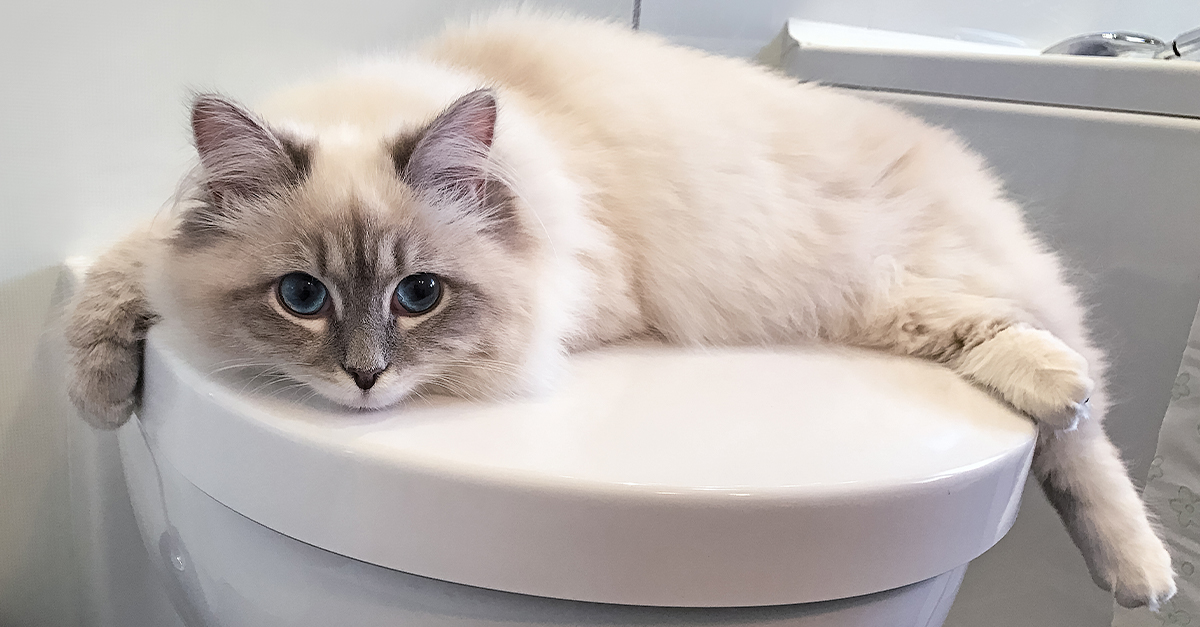Dangers of Flushing Cat Poop in Your Toilet - Precautionary Steps
Dangers of Flushing Cat Poop in Your Toilet - Precautionary Steps
Blog Article
Presented here below you will find more awesome expertise relating to How to Dispose of Cat Poop and Litter Without Plastic Bags.

Intro
As pet cat owners, it's necessary to bear in mind exactly how we get rid of our feline pals' waste. While it may appear convenient to purge cat poop down the commode, this practice can have detrimental effects for both the atmosphere and human wellness.
Environmental Impact
Flushing feline poop introduces damaging virus and parasites into the water, positioning a considerable risk to water communities. These contaminants can adversely influence marine life and compromise water high quality.
Health and wellness Risks
In addition to environmental problems, purging pet cat waste can likewise pose health and wellness risks to humans. Pet cat feces might consist of Toxoplasma gondii, a parasite that can cause toxoplasmosis-- a potentially severe health problem, particularly for expecting ladies and people with damaged body immune systems.
Alternatives to Flushing
Fortunately, there are much safer and more liable ways to get rid of pet cat poop. Take into consideration the following options:
1. Scoop and Dispose in Trash
The most typical approach of getting rid of cat poop is to scoop it into a naturally degradable bag and toss it in the garbage. Make certain to use a devoted trash scoop and take care of the waste immediately.
2. Usage Biodegradable Litter
Go with biodegradable feline litter made from materials such as corn or wheat. These clutters are environmentally friendly and can be safely disposed of in the garbage.
3. Bury in the Yard
If you have a backyard, take into consideration burying feline waste in an assigned location away from vegetable gardens and water resources. Make sure to dig deep sufficient to stop contamination of groundwater.
4. Mount a Pet Waste Disposal System
Purchase a family pet waste disposal system specifically developed for cat waste. These systems utilize enzymes to break down the waste, decreasing smell and environmental impact.
Verdict
Accountable animal possession expands beyond offering food and shelter-- it likewise entails appropriate waste monitoring. By avoiding purging cat poop down the commode and going with alternative disposal approaches, we can minimize our ecological impact and shield human health and wellness.
Why You Should Never Flush Cat Poop Down the Toilet
A rose by any other name might smell as sweet, but not all poop is created equal. Toilets, and our sewage systems, are designed for human excrement, not animal waste. It might seem like it couldn’t hurt to toss cat feces into the loo, but it’s not a good idea to flush cat poop in the toilet.
First and foremost, assuming your cat uses a litter box, any waste is going to have litter on it. And even the smallest amount of litter can wreak havoc on plumbing.
Over time, small amounts build up, filling up your septic system. Most litter sold today is clumping; it is made from a type of clay that hardens when it gets wet. Ever tried to scrape old clumps from the bottom of a litter box? You know just how cement-hard it can get!
Now imagine just a small clump of that stuck in your pipes. A simple de-clogger like Drano isn’t going to cut it. And that means it’s going to cost you big time to fix it.
Parasitic Contamination
Believe it or not, your healthy kitty may be harboring a nasty parasite. Only cats excrete Toxoplasma in their feces. Yet it rarely causes serious health issues in the cats that are infected. Most people will be fine too if infected. Only pregnant women and people with compromised immune systems are at risk. (If you’ve ever heard how women who are expecting are excused from litter cleaning duty, Toxoplasma is why.)
But other animals may have a problem if infected with the parasite. And human water treatment systems aren’t designed to handle it. As a result, the systems don’t remove the parasite before discharging wastewater into local waterways. Fish, shellfish, and other marine life — otters in particular — are susceptible to toxoplasma. If exposed, most will end up with brain damage and many will die.
Depending on the species of fish, they may end up on someone’s fish hook and, ultimately on someone’s dinner plate. If that someone has a chronic illness, they’re at risk.
Skip the Toilet Training
We know there are folks out there who like to toilet train their cats. And we give them props, it takes a lot of work. But thanks to the toxoplasma, it’s not a good idea.

As a keen reader about Can You Flush Cat Poo or Litter Down the Toilet?, I was thinking sharing that portion was really helpful. Sharing is nice. You never know, you may be doing someone a favor. Kudos for your time. Please pay a visit to our site back soon.
Explore Report this page